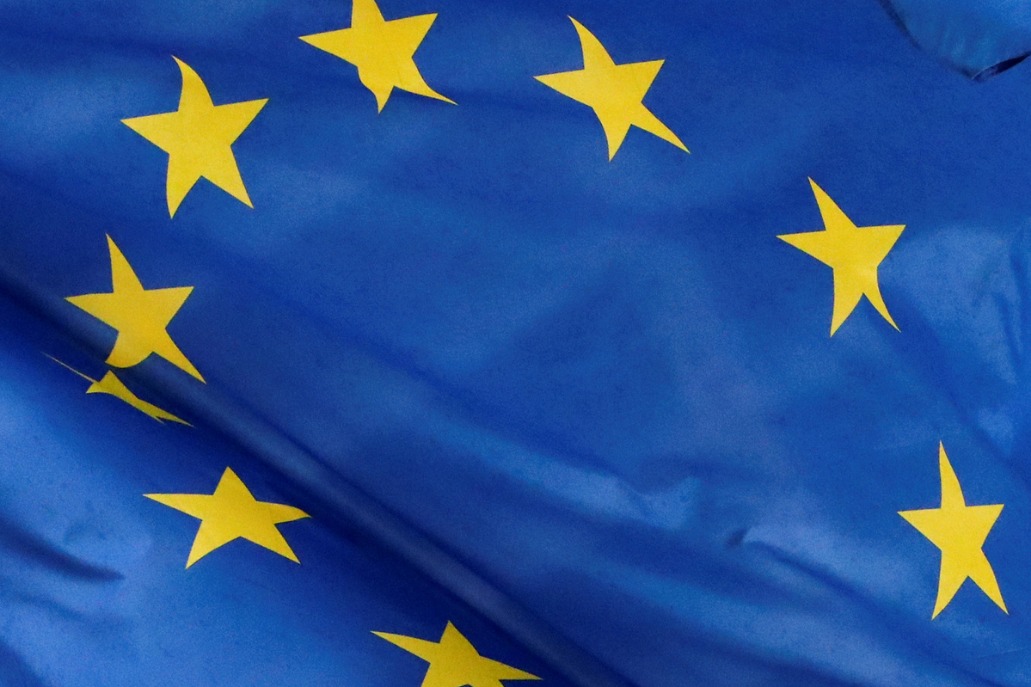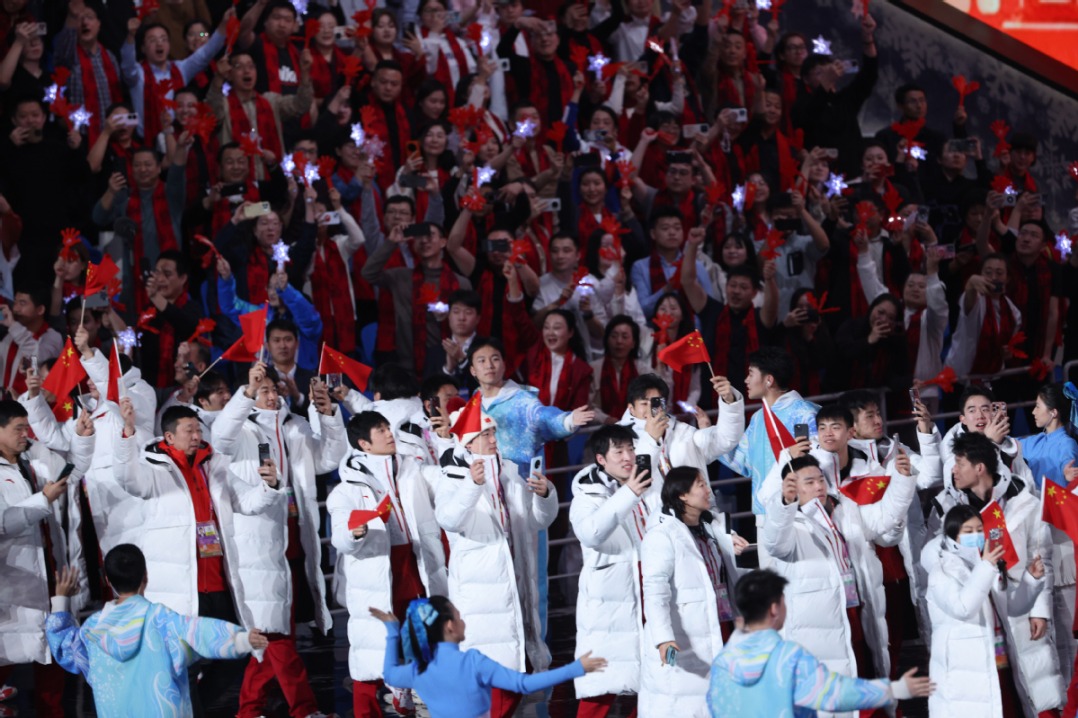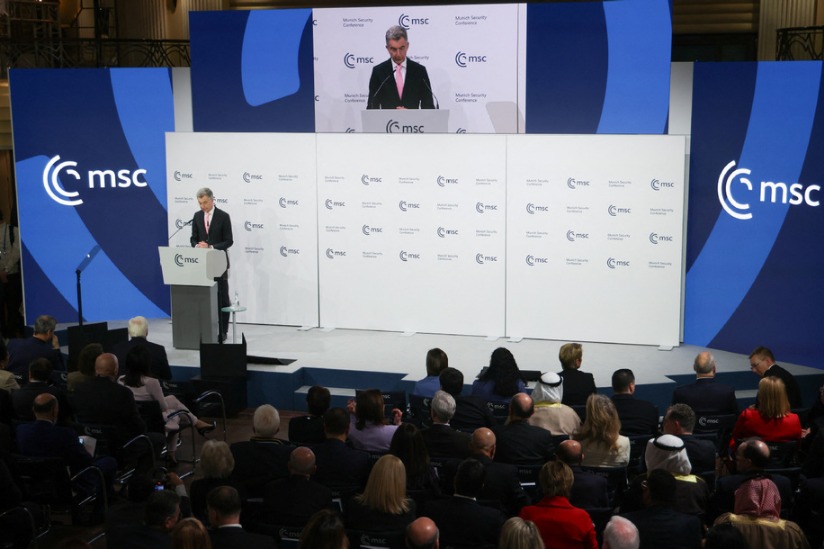Old friends in a new era


Editor's note: China Institute of International Studies released a report titled "China-Russia Relations in the New Era" on Friday, saying their bilateral ties are at a historically high level because of leadership diplomacy. Below are excerpts from the speeches of four experts at the report's launch event.
Promising prospect for China, Russia
China and Russia, as each other's largest neighbor and comprehensive strategic partner of coordination for the new era, are major countries in the world and permanent members of the UN Security Council. Both countries pursue independent foreign policies and place the bilateral relations high on their diplomatic agendas. The development of China-Russia relations has an inevitable historical logic and strong internal driving forces. The relationship, based on principles of equality, mutual respect and beneficial cooperation, is now at its best in history and has become a model between major countries and neighbors.
In the new era, China-Russia relations maintain healthy and steady development, with cooperation in various fields being advanced at an unprecedented pace. High-level interactions have become more frequent, featuring regular annual state visits. Political mutual trust has been enhanced. The potential of the two highly complementary economies has been unlocked. Trade volume has reached new highs, exceeding the $200 billion target set by the two leaders ahead of schedule. Cultural and people-to-people exchanges have flourished, with the friendship between the two peoples continuing to deepen, solidifying the social foundation of the bilateral relationship.
China and Russia have maintained close strategic coordination in international and regional affairs, emerging as a pivotal force in the pursuit of a just and fair world order. In short, throughout the decade of the new era, the bilateral relations have withstood the test of the evolving international landscape and yielded abundant fruits across various fields, marking a new golden era in history.
It is foreseeable that China-Russia relations for the new era will become more mature, stable, constructive and sustainable.
Chen Bo, president of China Institute of International Studies
Bilateral ties have global impact
Despite the mounting challenges in recent years, Sino-Russian ties have weathered the trials, emerging even stronger. The relationship has been guided by a core set of principles — mutual respect for each other's development paths, mutual respect for core national interests, and a commitment to peaceful coexistence. These principles are drawn from the Five Principles of Peaceful Coexistence and the United Nations Charter, both of which provide the foundation for maintaining stability between China and Russia.
Moreover, the China-Russia Treaty of Good-Neighborliness and Friendly Cooperation, which enshrines the principles of "non-alliance, non-confrontation and not targeting any third party", has played a pivotal role in maintaining a stable and resilient relationship.
In 2025, Sino-Russian cooperation will continue to be a key factor in shaping global peace and stability. This year the world will mark the 80th anniversary of the end of World War II and the founding of the United Nations. The two countries will celebrate these shared historical milestones, advancing the processes of world peace and multipolarity. Think tanks should feel the responsibility to align with China and Russia's strategic collaboration efforts this year.
This year, China is the chair of the Shanghai Cooperation Organization, and the cooperation between China and Russia within the SCO framework will have an immeasurable impact on regional security and development. Additionally, the cooperation between China and Russia in the BRICS group will play a positive role in shaping a fairer global economic order.
Li Yongquan, director of the Eurasian Social Development Research Institute at the Development Research Center of the State Council
New growth areas set to be tapped
The relationship with Russia exemplifies the broader strategic collaboration that China seeks with various partners. Sino-Russian cooperation has gradually progressed since 2001, when the two countries signed the China-Russia Treaty of Good-Neighborliness and Friendly Cooperation, later advanced to a "comprehensive strategic partnership" in 2011, and culminated in 2019 with the "comprehensive strategic partnership of coordination in the new era".
The development of these relationships is not accidental. Both nations are global powers, members of the UN Security Council, and their economic, military, and cultural influence is significant.
Moreover, there is significant potential for further pragmatic cooperation in areas such as trade, energy, agriculture, and finance. For example, the trade volume between China and Russia has already surpassed $200 billion . This demonstrates the ample room for growth in bilateral economic cooperation.
China's emphasis on increasing domestic competition and finding new growth areas in fields such as technology, agriculture, tourism, and renewable energy can further stimulate cooperation with Russia.
As international conditions evolve, it is essential to maintain strong coordination in strategic matters. Given the current global changes, strengthening this partnership is not just necessary but vital for future development.
Sun Zhuangzhi, director of the Institute of Russian, Eastern European and Central Asian Studies at the Chinese Academy of Social Sciences
Unlocking potential of comprehensive cooperation
To expand and strengthen international cooperation, China and Russia should seize the 80th anniversary of Russia’s victory in the Great Patriotic War and the victory in the Chinese People’s War of Resistance Against Japanese Aggression as an opportunity to enhance the UN-centered international system and emphasize the core role of the UN in global affairs. Both countries could collaborate on proposing reforms for the United Nations Security Council to enhance its working methods and efficiency. They could also work toward increasing the representation and voice of developing countries in multilateral financial institutions, further empowering the “Global South”, and jointly advocate for the establishment of a more fair, just, and rational global climate and environmental governance system. To implement and refine local cooperation, Russia has swiftly adjusted its economic development model under Western sanctions, leading to new directions in foreign trade logistics and a transformed economic geography. Over the past three years, regions such as the Urals and the Volga Federal District, with traditional defense industry as a pillar industry, have significantly contributed to the Russian economy. China and Russia should deepen cooperation at the two key regional cooperation points of “Northeast China- Russia’s Far East” and “Yangtze River-Volga River”. They should align and adjust their local cooperation demands and directions based on the new changes in Russia’s regional economic geography to further enhance the efficiency of their cooperation.
Shang Yue, deputy director of the Institute of Eurasian Studies at the China Institutes of Contemporary International Relations
The views don't necessarily reflect those of China Daily.

































